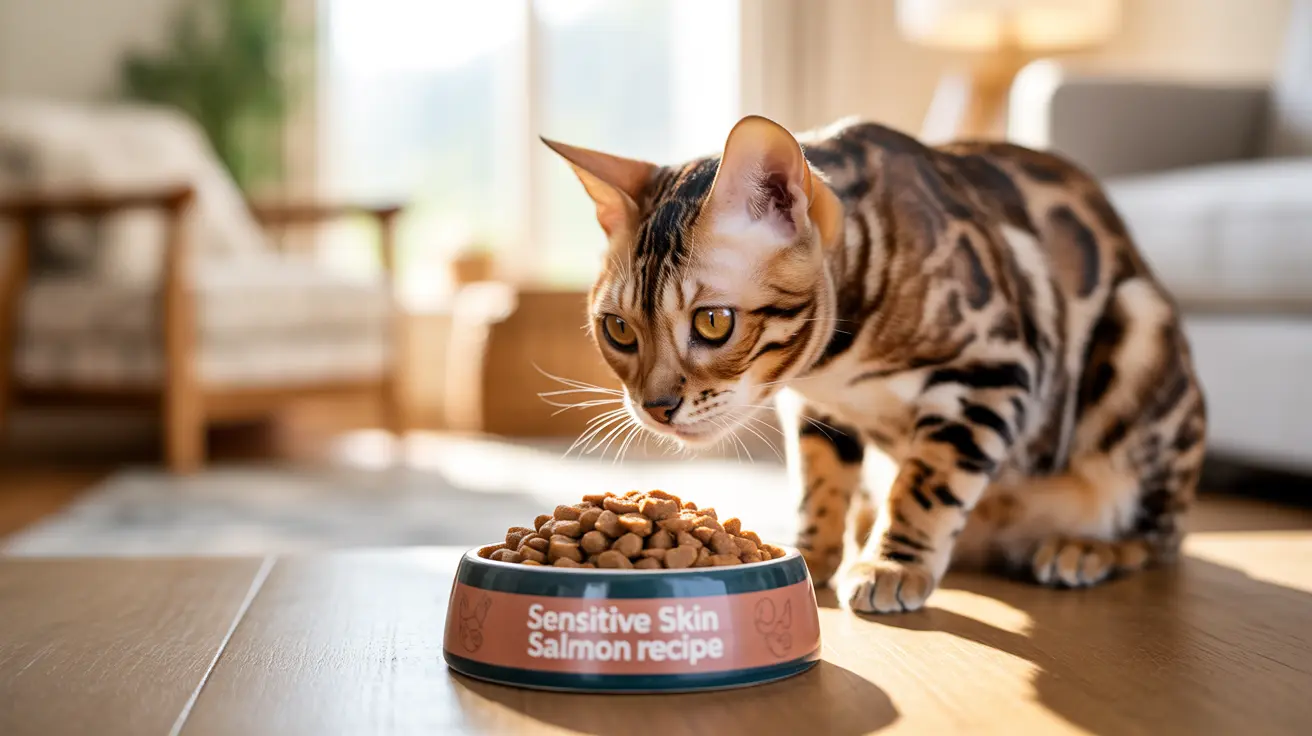Understanding Dry, Itchy Skin in Cats
Cats suffering from dry, itchy skin can experience significant discomfort, leading to excessive scratching, hair loss, and potential skin infections. As a pet owner, understanding how nutrition plays a vital role in managing these skin issues is crucial for your cat's wellbeing.
The right diet can make a remarkable difference in your cat's skin health, with specially formulated foods providing essential nutrients that target skin inflammation, moisture retention, and overall coat health. Let's explore the most effective nutritional solutions for cats with sensitive skin.
Key Ingredients That Combat Dry, Itchy Skin
When selecting the best cat food for dry itchy skin, certain ingredients stand out for their therapeutic properties:
Essential Fatty Acids
Omega-3 and omega-6 fatty acids are crucial for maintaining healthy skin barriers and reducing inflammation. Look for foods containing fish oil, flaxseed, or other marine-based sources of these essential nutrients.
Quality Proteins
High-quality, easily digestible proteins help reduce the risk of food allergies while providing the building blocks necessary for healthy skin and coat development. Novel protein sources like venison or duck can be particularly beneficial for sensitive cats.
Vitamins and Minerals
Vitamin E, zinc, and biotin play vital roles in maintaining skin health and promoting coat shine. These nutrients support the skin's natural healing processes and help maintain proper moisture levels.
Top Recommended Foods for Sensitive Skin
Prescription Options
Veterinary-prescribed diets often provide the most targeted approach for severe skin issues. These formulations typically feature hydrolyzed proteins or limited ingredients to minimize allergic reactions.
Over-the-Counter Solutions
Several high-quality commercial brands offer specialized formulas for skin sensitivity, combining optimal nutrient levels with carefully selected ingredients to support skin health.
Transitioning to a New Diet
When introducing the best cat food for dry itchy skin, gradual transition is essential to prevent digestive upset. Start by mixing small amounts of the new food with the current diet, slowly increasing the proportion over 7-10 days.
Complementary Care Tips
While nutrition forms the foundation of skin health, combining dietary changes with proper grooming and environmental management can enhance results. Regular brushing helps distribute natural oils throughout the coat, while maintaining a clean living space reduces exposure to potential irritants.
Frequently Asked Questions
What are the best cat foods for relieving dry, itchy skin in cats?
The best options include specially formulated foods rich in omega-3 and omega-6 fatty acids, with high-quality proteins and limited ingredients. Look for brands that specifically target skin health and have proven results in improving coat condition.
How do omega-3 and omega-6 fatty acids help improve my cat's skin and coat health?
These essential fatty acids help reduce inflammation, maintain skin barrier function, and promote proper hydration of the skin. They also contribute to coat shine and help reduce excessive shedding.
Which ingredients should I look for in cat food to help manage my cat's dry, itchy skin?
Look for foods containing fish oil, quality protein sources, vitamin E, zinc, and biotin. Avoid common allergens like corn, wheat, and soy if your cat shows sensitivity to these ingredients.
Can food allergies cause dry, itchy skin in cats, and how can a specialized diet help?
Yes, food allergies are a common cause of skin issues in cats. Specialized diets with limited ingredients or hydrolyzed proteins can help by eliminating potential allergens and providing easily digestible nutrients.
How long does it usually take to see improvements in my cat's skin and coat after switching to a sensitive skin formula?
Most cats show noticeable improvements within 4-6 weeks of consistent feeding with an appropriate diet. However, some cases may take up to 12 weeks to see significant results.
Conclusion
Finding the best cat food for dry itchy skin requires careful consideration of ingredients, your cat's specific needs, and consistent monitoring of their response to dietary changes. While it may take time to see results, the right nutritional approach can significantly improve your cat's skin health and overall quality of life.






